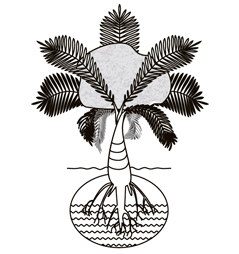Supervision & Coaching

Being kind to oneself and feeling free to have fun and joy is not a frivolity in this field but a necessity without which one cannot fulfil one's professional obligation, one's professional contract.
(Yael Danieli, A psychotherapist working with survivors of the Shoah)
Coaching and supervision in the context of trauma and as part of international peace and development work
It is impossible for anyone who is in contact with the survivors of traumatising powerlessness to remain untouched by it. It is extremely hard to maintain a healthy balance between empathy and boundaries when we are working with people who have gone through – or are still going through – horrific violence, existential insecurity, and fear for their lives. Helpers can easily be drawn into these traumatic dynamics and forced to play a role in them, sometimes as a rescuer and sometimes as a persecutor when they cannot fully meet the survivor's immense needs – and sometimes switching from one to the other in turn. In the end, as Karpman's drama triangle suggests, helpers can start feeling as if they are also victims. The dynamics of trauma are very strong, and those who support people affected by it have started to accept and acknowledge the need to be supported themselves, for example though coaching or supervision (I consciously use these terms synonymously, while recognising the clear nuances between them).I accompany teams and individuals who work in contexts of flight / migration, (gender-based) violence, and violence in close relationships, both my private practice in Salzburg and internationally.
Along with providing an understanding of trauma dynamics and initiating processes of self-reflection on how we deal with powerlessness, one of my main concerns reflects the words of Yael Daniel above: how to encourage helpers in traumatic contexts and in contact with traumatised people to care for themselves with a mindful and benign attitude, not merely as a kind of voluntary evening or weekend afterthought, but as a professional obligation that becomes an essential part of their work, and is supported within their organisational structures. We cannot be in touch with others and remain appreciative and supportive if we lose touch with ourselves. We cannot remain healthy in our relational capacities if we are always professional witnesses of traumatic dynamics. We cannot work in lively, nurturing organisations for people affected by powerlessness if we do not protect and strengthen our organisational relationships.
A particular specialisation: Coaching and supervision in peace and development services
Many peace and development services in Germany and beyond offer coaching and supervision for the peace / development workers they send to projects in different countries. This support tries to initiate an awareness of boundaries and stress in order to prevent burn-out and other forms of over-demand while reflecting on their personal and professional processes, and thereby developing their inner potential and outer relationships on both a personal and work-related level. I have been active in this type of supportive work as a coach / supervisor for different peace and development services since 2003.
My approach is rooted in the many years I have spent as a consultant in psychosocial trauma work in war and conflict areas, starting in 1998 when I spent more than three years in Uganda with the Arbeitsgemeinschaft für Entwicklungshilfe (AGEH). Since then I have accompanied several different and often long-term projects as an expert freelance consultant in countries including Rwanda, Burundi, Uganda, Liberia, Nigeria, Kosovo, and Bosnia-Herzegovina. The feedback I have received from development and peace workers has proven that my experience of working and living in conflict zones helps to create trust and to make my support feel more "rooted" and "realistic".
I have come to realise that one of the most common issues with self-care in conflict regions is not so much that people do not know what support they need, but rather what I refer to as "guilt-induced stress". Workers in this field constantly have the subtle (and sometimes overt) feeling that their own stress is trivial compared to the suffering of the people who live permanently in the country, and this self-devaluing attitude automatically generates feelings of guilt when exhaustion and the need for self-care makes them distance themselves from the suffering around them.
Focal areas
Based on my experiences in supporting people in many countries around the world, my regional foci are:
- East- and Central Africa: Rwanda, Burundi, DR Congo, Uganda, Tanzania, Kenya, Central African Republic
- Western Africa: Sierra Leone, Liberia, Senegal, Cameroon
- Asia: Afghanistan, India, Indonesia, Papua New Guinea, Pakistan
- South / Middle America: Columbia, Bolivia, Peru, El Salvador, Guatemala.
If you are looking for a coach or supervisor in the context of violence and/or trauma, either here in Austria or internationally, please contact to arrange an introductory meeting either in person or via telephone/skype.

